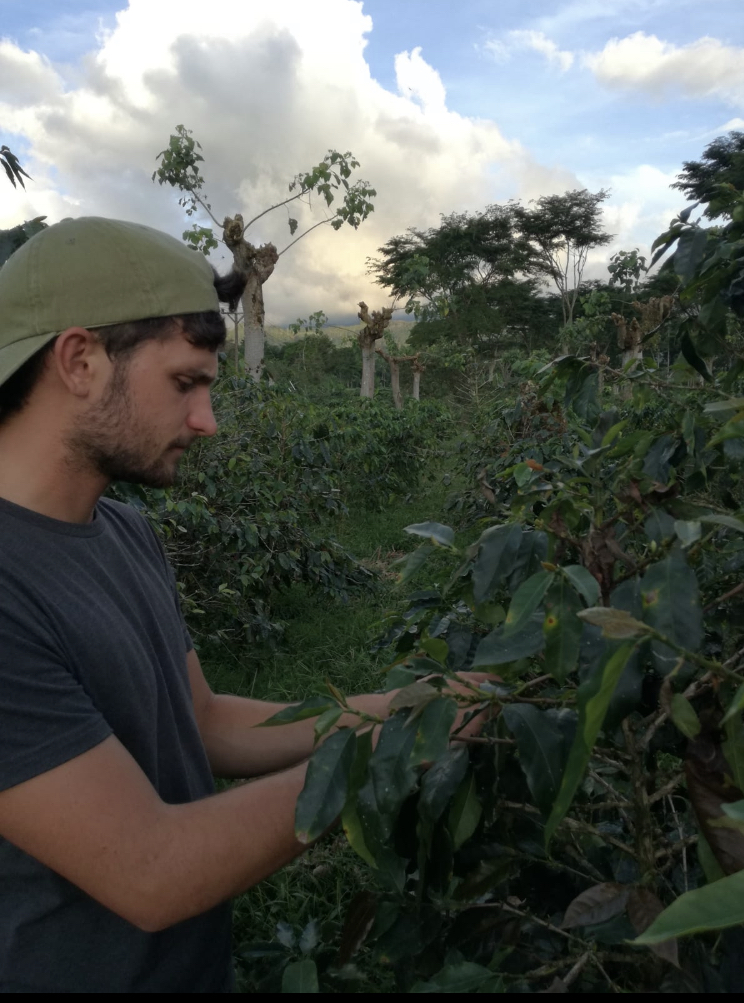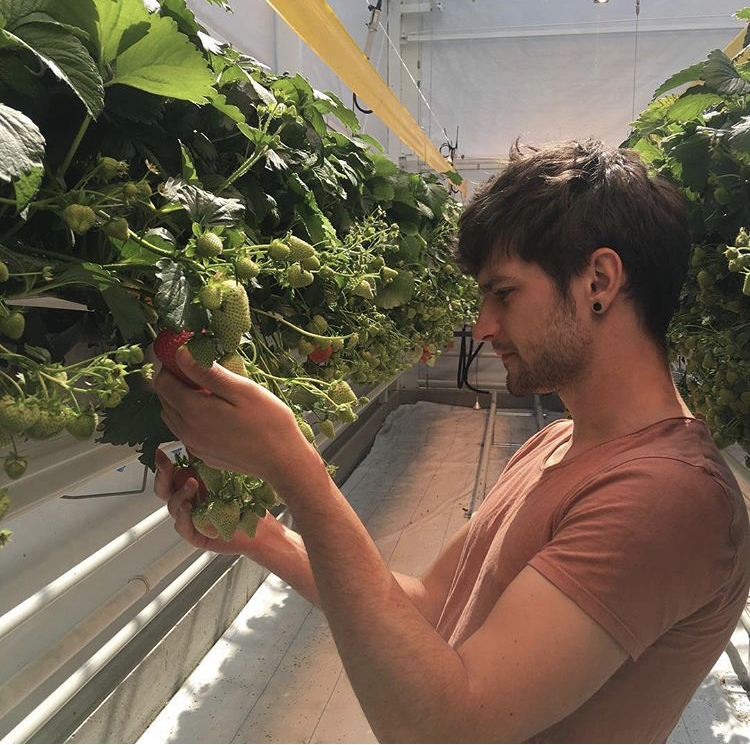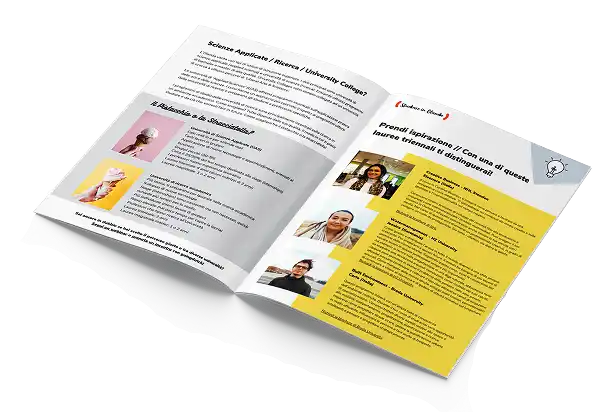>>English version below<<
Yuri Gelao (Varese)
Horticulture & Business Management (Orticoltura e gestione aziendale)
HAS University of Applied Sciences
“La mia conoscenza dell’ingegneria elettronica si rivela davvero utile per la parte più tecnica della creazione e del lavoro con le serre”. Yuri
Perché hai scelto i Paesi Bassi?
Ho scoperto che il sistema della Applied Science Universities in Olanda è perfetto per studenti come me. Le università di scienze applicate offrono diplomi di laurea, quindi esci con una “Laurea Triennale”, ma il modo di studiare e gli argomenti sono molto più pratici. Era esattamente quello che stavo cercando!
E perché orticoltura e gestione aziendale?
Ho seguito l’indirizzo elettronico presso il mio Istituto Tecnico. Anche se potrebbe sembrare strano passare dall’ingegneria elettronica all’orticoltura, c’è una connessione. Nel mio ultimo anno dell’istituto tecnico ho dovuto fare un progetto di laurea e ho creato una growbox completamente automatizzata per le colture. Umidità, luce, tutto era automatizzato. Questo progetto mi ha fatto capire che ero molto più interessato alle piante e al modo in cui si sviluppano,ma nell’ambito dell’elettronica del growbox. In un certo senso il modo in cui funzionano le piante è anche “tecnologia”. E la mia conoscenza dell’ingegneria elettronica risulta essere davvero utile per la parte più tecnica della creazione e del lavoro con le serre.
“Tutti i giorni in ufficio, aiuto!”
“Mi sono anche reso conto – dopo uno stage durante l’istituto tecnico – che se avessi scelto di studiare ingegneria elettronica, probabilmente avrei trascorso la maggior parte della mia vita lavorativa in un ufficio su sistemi elettronici. Ciò non ha suscitato il mio entusiasmo. Quindi ho deciso di andare nella direzione dell’orticoltura! Gestione dell’impianto con un pizzico di tecnologia.
Certo, ho anche cercato un corso in Italia in orticoltura / agroalimentare. C’erano alcune opzioni, ma molto molto teoriche. L’unica parte pratica limitata ad alcuni viaggi sul campo e alla quantità di lavoro di laboratorio.”
Sto diventando davvero curioso ora, dimmi di più sul programma!
“Alla base si concentra sulla coltivazione in serra di fiori, frutta e verdura. Il corso fornisce un mix di argomenti come genetica, biologia, scienze vegetali, affari e gestione, marketing, finanze ecc.
La mia settimana tipo è un mix di lezioni, lavoro di laboratorio, progetti di gruppo e il mio progetto in serra. Nel primo anno in HAS avevo già 2 stage in programma di un mese ciascuno; quindi ho subito maturato una certa esperienza lavorativa. Utili anche i corsi che si concentrano maggiormente sulla capacità di utilizzare determinati programmi per gestire la tua serra e sulla capacità di presentazione, come scrivere un rapporto ecc.

Il programma offre inoltre agli studenti la libertà di scegliere una direzione che si adatta ai loro interessi. Per uno stage nel mio terzo anno, ad esempio, sono andato in Costa Rica dove ho lavorato in piantagioni di caffè organizzate come sistemi agroforestali. Inoltre, nel terzo anno, tutti gli studenti possono scegliere un corso secondario (all’estero) da 3 a 6 mesi. Ho deciso di studiare Gestione forestale all’Università di Bologna. Mi ha fatto capire che questo è l’argomento che più mi piace!”
Che cosa hai trovato stimolante nello studio nei Paesi Bassi?
“Oltre ad aver pedalato sotto la pioggia 😉 ho dovuto abituarmi al lavoro di gruppo. Nel primo anno abbiamo iniziato con un corso che ci ha insegnato a risolvere i problemi in gruppo. Dopo di che abbiamo iniziato a lavorare insieme su casi reali. All’inizio non mi piaceva per niente, preferivo lavorare individualmente. Nel gruppo ero timido, avevo difficoltà a parlare e non sempre partecipavo attivamente. Ma è stato molto utile imparare a lavorare bene in gruppo e ora lo sto gestendo molto meglio.
Un’altra sfida era studiare in inglese. Ho scelto di andare a Dublino per un anno prima di iniziare i miei studi in Olanda e mi ha aiutato molto.”
Quale diresti che è la più grande differenza tra HAS e un’università italiana?
“Ebbene, durante il mio corso secondario all’Università di Bologna ho notato che eravamo messi in gruppi più grandi, c’era meno interazione e c’era molto meno lavoro di gruppo. Ho lavorato ad un solo progetto durante il corso di 6 mesi. A HAS sembra più un’esperienza di scuola superiore, nel senso che i gruppi sono più piccoli (25 studenti), in realtà sai che gli insegnanti e le classi sono interattive.”
Che cosa vorresti fare dopo la laurea?
“Ho iniziato il mio ultimo anno, quindi dipende un po ‘come andrà a finire. Farò un master o inizierò la mia attività. Ora sto seguendo il programma all’interno di HAS che ti supporta nel lavoro al tuo piano aziendale e alla tua idea. Se dopo mi sentissi abbastanza sicuro al riguardo, lo farò! In caso contrario probabilmente sceglierò un master.”
Il tuo consiglio per gli studenti italiani che stanno valutando i Paesi Bassi è …..?
“Quando provieni da un Istituto Tecnico cerca l’opzione delle scienze applicate nei Paesi Bassi! È davvero molto adatto per coloro che vogliono continuare a studiare, ma hanno dubbi sul modo teorico di apprendere in un’università di ricerca. Le scienze applicate a livello universitario sono qualcosa che purtroppo non esiste in Italia.”
>>>>>>>
Altre Università di Scienze Applicate:
English version
Yuri Gelao, Varese
Horticulture & Business Management
HAS University of Applied Sciences
“My knowledge about electronical engineering turns out to be really useful for the more technical part of creating and working with greenhouses.”
Why did you choose the Netherlands?
Why Horticulture & business management?
Every day in the office, aiuto!
“My technical background turns out to be very useful in horticulture!”
The program also gives students the freedom to choose a direction that fits their interest. For an internship in my third year for example I went to Costa Rica where I worked with coffee plantations set up as agroforestry systems. Also, in the third year, all students get to choose a minor (abroad) of 3 to 6 months. I decided to study Forest Management at the University of Bologna. It made me realise that this is the topic that I like most!
Another challenge was to study in English. I choose to go to Dublin for a year before I started my studies and it helped me a lot.
Well, also during my minor at the University of Bologna I noticed that we were put in bigger groups, there was less interaction and there was much less group work. I had 1 project during the 6-month course. At HAS it feels more like a high school experience in the sense that the groups are smaller (25 students), you actually know the teacher and the classes are interactive.
I’ve started my last year, so it depends a bit how that turns out. I will either do a master or start my own business. I’m now following the program within HAS that supports you working on your business plan and idea. If after that I feel confident enough about it, I will go for that! If not, I will probably go for a master.

